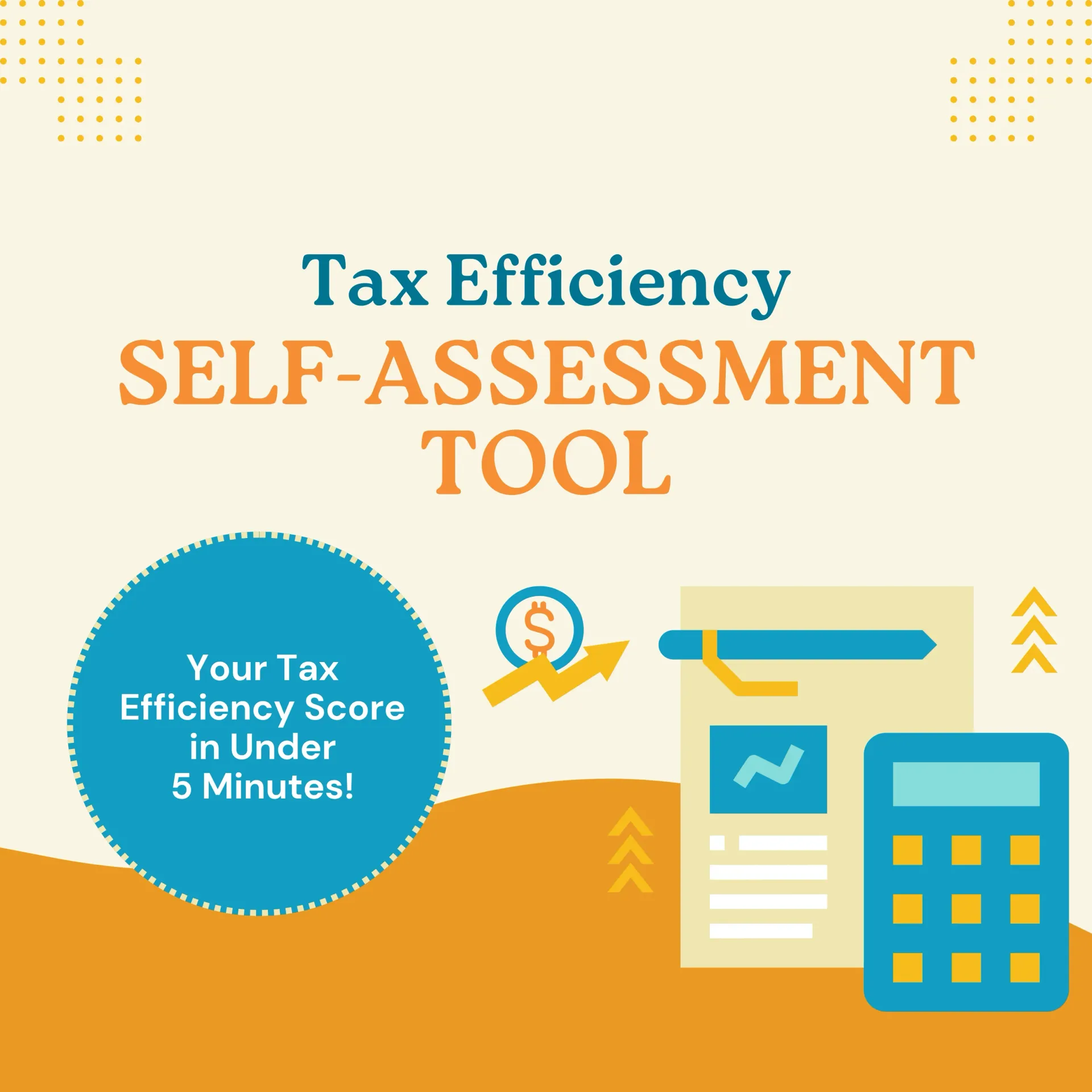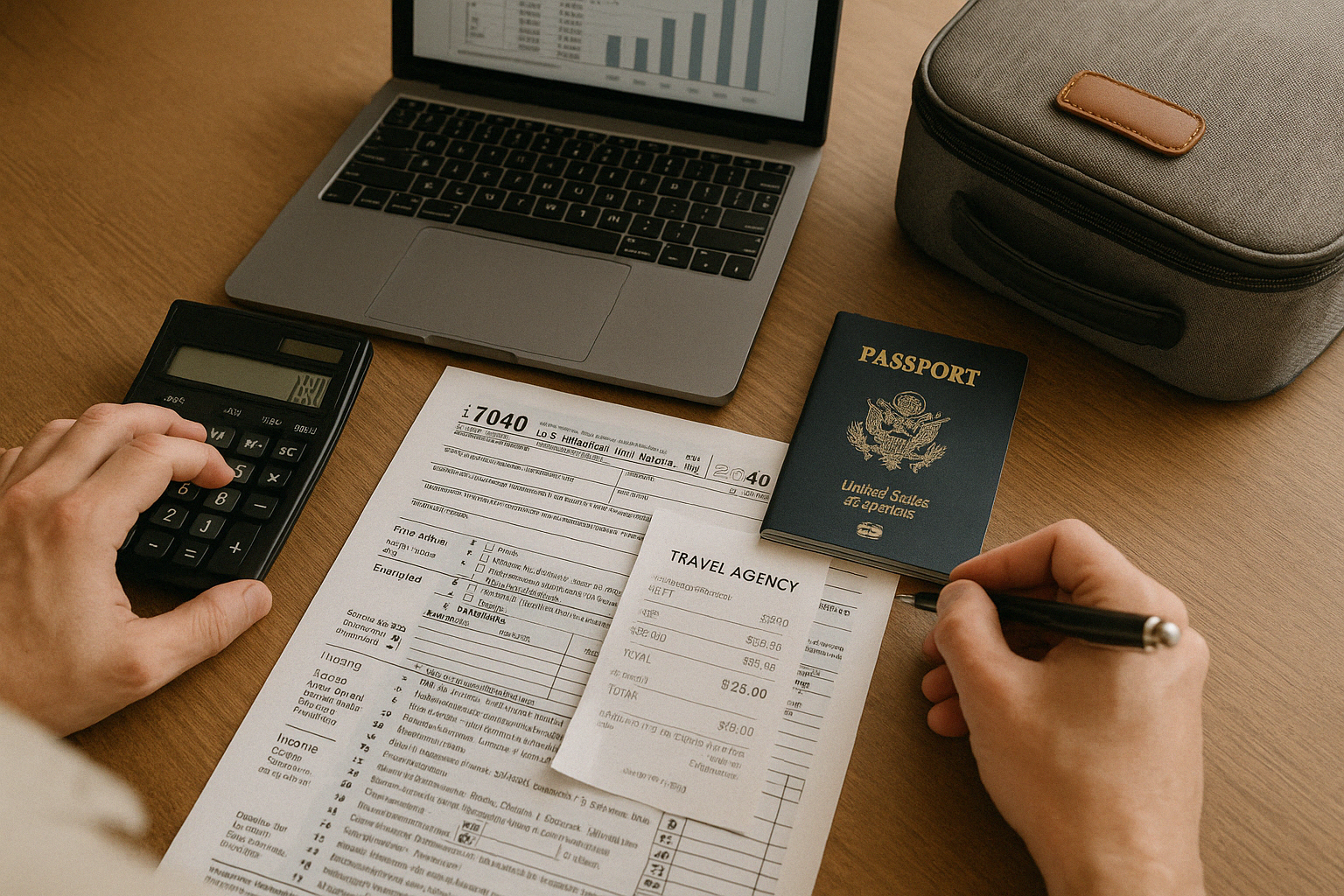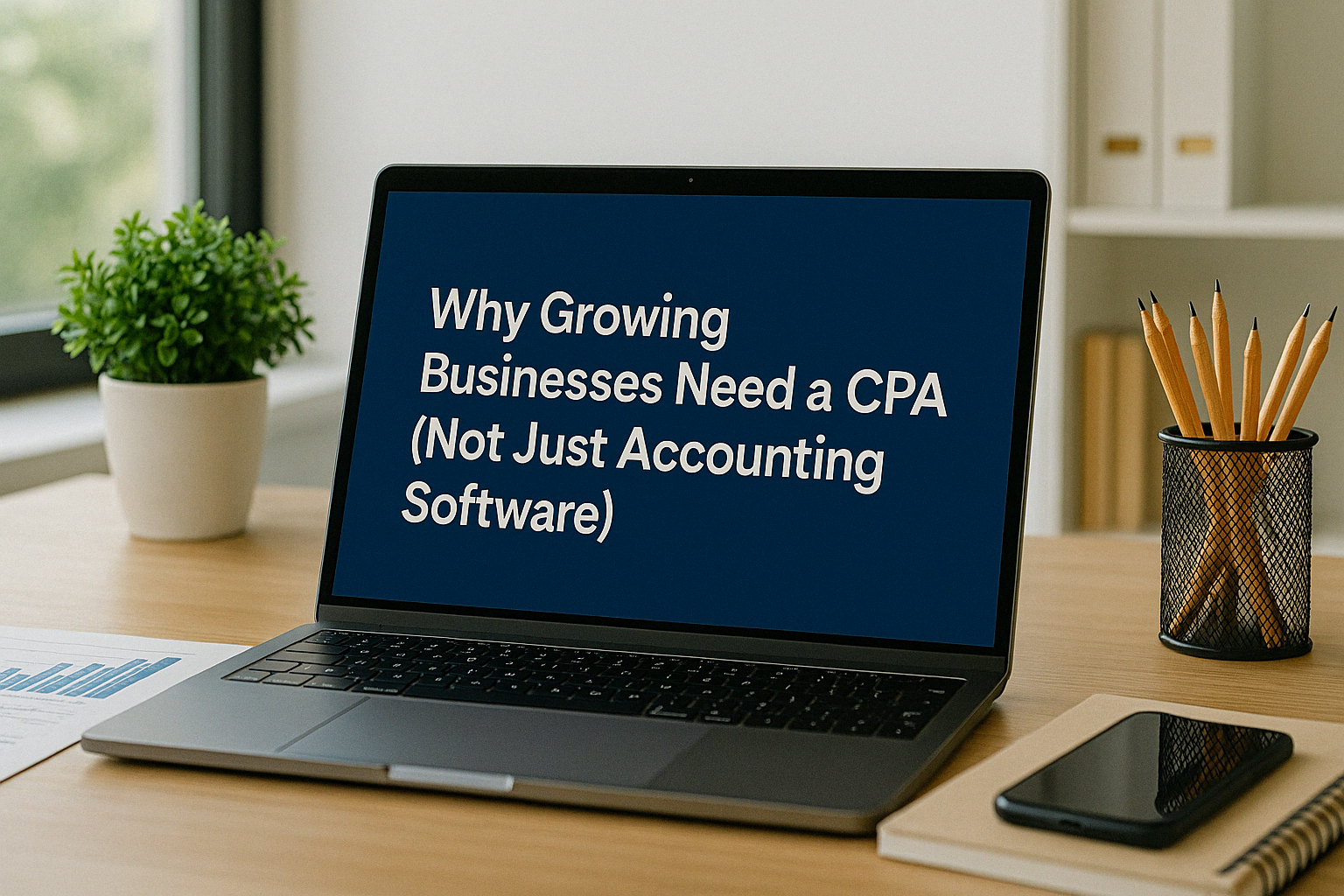Tax Preparation Checklist: What to Gather Before Filing

Filing taxes doesn’t have to be stressful. With the right
preparation, the process becomes straightforward, efficient, and stress-free. At Straight Talk CPAs, we’re all about simplifying your tax journey. In this guide, we’ll outline everything you need to gather to ensure a smooth tax filing experience.
Why Preparation Matters for Tax Filing
Tax season can be overwhelming, but being prepared helps you:
- Avoid costly errors or penalties.
- Maximize deductions and credits.
- Save time by organizing your documents upfront.
Before diving into the checklist, start by categorizing your documents (e.g., income, deductions, credits), maintaining both physical and digital copies, and ensuring records from previous years are easily accessible.
Personal Information
Key Documents:
- Social Security Numbers (SSNs): Have SSNs ready for yourself, your spouse, and any dependents.
- Taxpayer Identification Numbers (TINs): Needed for dependents or individuals without SSNs.
- Previous Year’s Tax Return: Helpful for referencing carryovers or past deductions.
Notes:
Having your
personal information prepared ensures faster verification and processing with the IRS.
Proof of Income
Essential Documents:
- W-2 Forms: Provided by employers, detailing wages and taxes withheld.
- 1099 Forms: For freelancers, contractors, and other income sources.
- Investment Income Statements: Include interest, dividends, and capital gains (Forms 1099-INT, 1099-DIV, 1099-B).
- Alimony Received: Documentation for payments under agreements made pre-2019.
- Business Income Records: Profit and loss statements, receipts, and income logs for the self-employed.
Pro Tip:
Keep income-related documents in one location to avoid last-minute scrambling during tax season.
Deduction Records
Documents to Gather:
- Mortgage Interest Statements (Form 1098): For claiming interest deductions.
- Property Tax Bills: Potentially deductible state and local taxes.
- Charitable Contributions: Receipts or acknowledgment letters from qualified organizations.
- Medical and Dental Expenses: Keep receipts if costs exceed 7.5% of your adjusted gross income.
- Education Expenses: Include Form 1098-T and other tuition-related records.
Additional Strategies:
Some uncommon deductions to consider:
- Home Office Deduction: For those who qualify, this deduction can significantly reduce taxable income.
- Health Savings Accounts (HSAs): Contributions to an HSA reduce taxable income, and withdrawals for qualified medical expenses are tax-free.
- Energy-Efficient Home Improvements:
Upgrades such as solar panels or energy-efficient windows qualify for federal tax credits.
Credit Documentation
Key Credits to Maximize:
- Childcare Costs: Maintain receipts and documentation for daycare expenses.
- Education Credits: Include records for the American Opportunity Credit or Lifetime Learning Credit.
- Energy-Efficiency Improvements: Proof of upgrades, like solar panels, to claim available credits.
Business Owners: What to Prepare
Tax preparation for business owners requires extra attention to detail.
Key Areas to Address:
- Business Expense Receipts: Meals, travel, mileage, and office supplies should be documented.
- Asset Depreciation Records: Include documentation for Section 179 and bonus depreciation deductions.
- Employee Benefits: Maintain records of tax-deductible benefits like health insurance or retirement contributions.
Unique Business Deductions to Consider:
- Augusta Rule: Allows business owners to rent their personal residence to their business for tax-free income (up to 14 days per year).
- Work Opportunity Tax Credit: Claim a credit for hiring employees from eligible groups, such as veterans.
- Qualified Improvement Property (QIP) Deductions: Faster write-offs for interior improvements to non-residential properties.
Additional Considerations
- Estimated Tax Payments: Ensure proof of quarterly payments to avoid penalties.
- Retirement Contributions: Gather records of contributions to IRAs or 401(k) plans.
- State and Local Taxes (SALT): Include payment records for potential deductions.
Tips for Staying Organized Year-Round
- Go Digital: Use apps to scan and categorize documents for easy access.
- Set Reminders: Schedule quarterly reviews of your finances to stay on top of your tax prep.
- Consult Experts: Straight Talk CPAs can help identify tax-saving opportunities specific to your situation.
Conclusion
A stress-free tax filing process starts with preparation. By following this checklist, you’ll be equipped to file your taxes efficiently and confidently. The right documents and strategies can make all the difference in maximizing your savings and minimizing your tax burden.
Need personalized assistance?
Contact Straight Talk CPAs today and let us guide you through a seamless tax season.
Discover Your Tax Savings Score in Minutes!


Salim is a straight-talking CPA with 30+ years of entrepreneurial and accounting experience. His professional background includes experience as a former Chief Financial Officer and, for the last twenty-five years, as a serial 7-Figure entrepreneur.




